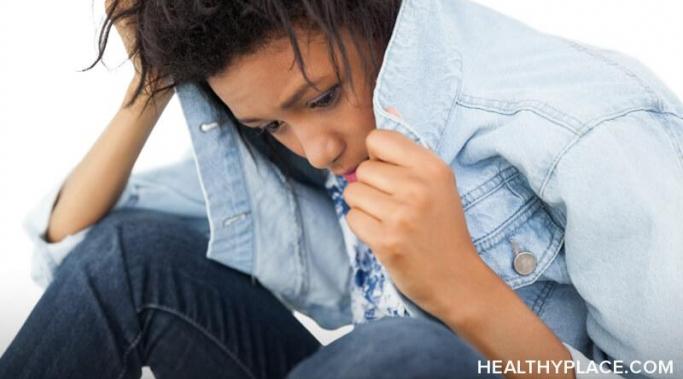Blogs
The feeling that life is meaningless can lead to suicidal ideation. This ideation is thoughts about suicide without the intention to follow through with it. While suicidal ideation is common and can pass quickly, it can become dangerous if it is not treated. I find writing to be a healthy way to cope with suicidal ideation. Here are some things to keep in mind if you want to use writing as a healthy coping technique. (Note: This post contains a trigger warning.)
We don't talk about anxiety and suicide very often. In fact, when we think about suicide, the first association that comes to mind is often depression. The link between suicidality and depression has been documented not only in the research literature but also in much of the media we consume, to the extent that the majority of people are aware of this link. Unfortunately, we are much less aware as a society of the impact that anxiety has on suicide. (Note: This post contains a trigger warning.)
Shame and suicidal thoughts are often part of living with complex posttraumatic stress disorder (PTSD), especially after childhood trauma. When you are experiencing shame, those thoughts can become worse. Understanding how to identify shame and have self-compassion can help with suicide prevention. (Note: This post contains a trigger warning.)
Having healthy coping skills and knowing how to practice them can play a major role in suicide prevention. When someone is struggling with depression and suicidal thoughts, the pain and confusion he/she feels is often compounded by misinformation, incorrect beliefs, and unhealthy coping skills. Yet, these are often the only things a person suffering from a mental health crisis has at his/her disposal. It's time to change this now by having educational conversations about mental health, suicide, and healthy coping skills. (Note: This post contains a trigger warning.)
Suicide attempts are more prevalent than anyone would like. This means that there is a whole population of people out there who need a different kind of help than the one suicide prevention resources currently offer. This also means that many people may currently be finding themselves alive on the other end of a suicide attempt and wondering, “What happens after a suicide attempt?” (Note: This post contains a trigger warning.)
It's hard staying grounded while facing verbal abuse, especially if you've been on the abuse merry-go-round with family, friends, or significant others for some time. Having deep-seated connections with abusers can cause confusion when it comes to determining your feelings and deciphering boundaries because these loyalties make it difficult to decide if a behavior is okay.
Every time somebody attempts or dies by suicide, at least six people are left struggling profoundly to deal with the difficult, overwhelming emotions that are a natural part of grief1. Those bereaved by suicide often feel high anxiety and guilt. Unfortunately, however, this intense anxiety and crushing guilt can be overlooked as everyone focuses on the person who has attempted or died by suicide. If you have excessive anxiety, worry, fear, and/or feelings of guilt in the wake of suicidal behavior of someone you care about, know that you're not alone and that your feelings aren't wrong or selfish. The following information can help you identify your anxiety and guilt as well as know what to do about it. (Note: This post contains a trigger warning.)
How can blogging help your mental health? Here's how it's helped mine.
It can be quite scary and disturbing to experience suicidal thoughts. These kinds of thoughts may also overwhelm you and make you feel worried about acting on them. However, you can calmly deal with suicidal thoughts. (Note: This post contains a trigger warning.)
Let's face it; most people feel uncomfortable when the word suicide comes up in conversation. No one wants to think about losing a loved one to suicide. It can be painful to hold space for someone struggling with suicidal thoughts. You might think, "I don't know what to say. What if I make it worse?" Luckily, providing support to a suicidal friend or loved one is more straightforward than it seems. (Note: This post contains a trigger warning.)










I believe she will only be able to rid herself of her demons, and hopefully her BPD as well, when she's ready to confront the abuse of her father. If she can put the blame where it belongs, she may stop projecting that victim/perpetrator cycle on the present men in her life. These demons are a metaphor for the purgatory she has created for herself. That reality has consequences in the real world, but it need not be real in the tangible sense. Exorcising her demons will require the expenditure of real physical energy and probably the destruction of aspects of her personality. If this ever happens, and it's possible but not probable, then these demons will evaporate. They are only as real as one's personality is real. In short, reality is not the question, it's what you make of the things you feel to be real.